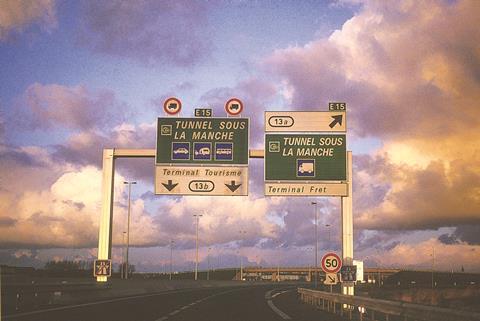This summer’s disruption on both sides of the Channel Tunnel highlights the needs for risk managers to have a plan B in place

Events in Calais this summer have highlighted the risk posed to supply chains when political disruption occurs at vulnerable pinch points.
Delays caused by striking ferry workers and protests and blockades by French farmers left long lines of delayed trucks stretching back miles from the Channel Tunnel’s railway terminals for days.
At one point, more than 5,000 lorries were stranded in Britain, with another 3,000 left stationary on the French side, according to estimates by hauliers.
The British transport industry incurred losses of about £750,000 a day, according to the Freight Transport Association, while companies across many sectors faced a crisis in their just-in-time value chains as key supplies were stranded in transit.
In July, a British Toyota car engine factory in Deeside, north Wales, was forced to halt production when lorries full of essential components were stranded during a four-day blockade of Calais.
Key to navigating this challenging situation successfully was flexibility. “People were looking for alternative ways to ship goods to the UK, going via Belgium instead of Calais,” says Carl Leeman, chief risk officer at Belgian supplier of logistics and distribution services Katoen Natie.
As a result, vehicles travelling from the port of Zeebrugge in Belgium to Teesport in the UK boomed, with increases of more than 170% compared with traffic levels in July 2014, according to Leeman.
“Again from Zeebrugge – but this time to Hull or Tilbury in the UK – traffic has increased by 84% and 74% respectively since last year,” he says.
“Unfortunately not all cargo can travel by ship for different reasons. So, for some, the only alternative is waiting or moving goods by plane. Both are costing a lot more to the supply chain.”
More problems to come
Further problems are expected in the months to come because, despite the efforts of the French and British governments to resolve the situation, a political and security solution to the disruption in Calais is still some way off.
“I do not think [the situation in Calais] will be easily solved as it is politically very sensitive and the people trying to cross have absolutely nothing to lose,” says Leeman.
Risk managers need to map their supply chain and understand exactly where and how supplies are reaching them – and where the pinch points are.
“For risk managers, it’s always the same: you have to have different options and alternative ways to move your things from A to B in your supply chain,” says Leeman.




















No comments yet